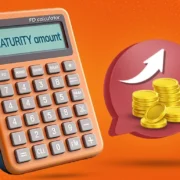Tokens are reshaping how digital transactions occur, driving efficiency and innovation across various sectors. This transformation hinges on their ability to facilitate and secure transactions in ways traditional systems struggle to match. Understanding how tokens are revolutionizing digital transactions sheds light on their growing importance in the digital economy.
What Are Tokens?
Tokens are digital assets created and managed on blockchain platforms. Unlike cryptocurrencies that operate on their native blockchains, tokens function on established networks like Ethereum. They represent value or utility within specific ecosystems, enabling various functionalities from payment to governance.
1. Streamlining Transactions
Tokens streamline digital transactions by eliminating intermediaries. Traditional financial systems often involve banks or payment processors that add complexity and delay. Tokens, through smart contracts, automate transactions and ensure they are executed precisely as programmed. This efficiency reduces transaction costs and speeds up processing times, benefiting both businesses and consumers.
2. Enhancing Security
Security is a critical aspect of digital transactions, and tokens offer robust solutions. Blockchain technology, the foundation for tokens, provides a secure and transparent way to record transactions.
Each token transaction is encrypted and recorded on a decentralized ledger, making it resistant to tampering and fraud. This high level of security is essential in an era of prevalent data breaches and cyber threats.
3. Facilitating Decentralized Finance (DeFi)
Tokens are integral to the rise of decentralized finance (DeFi), a sector transforming traditional financial services. DeFi platforms leverage tokens to offer services such as lending, borrowing, and trading without intermediaries.
This decentralization democratizes access to financial services, allowing users to engage directly with platforms and access opportunities that were previously restricted.
4. Enabling Smart Contracts
Smart contracts are self-executing agreements with terms written into code. Tokens utilize smart contracts to automate various processes, from transaction execution to compliance verification.
This automation reduces human intervention, minimizes errors, and ensures transactions are carried out according to predefined rules. Smart contracts are a key driver in the efficiency and reliability of token-based transactions.
5. Driving Innovation in Various Sector
Tokens are not limited to finance; they are making waves in multiple industries. In supply chain management, tokens track goods from origin to destination, enhancing transparency and efficiency.
In entertainment and gaming, tokens facilitate in-game purchases and reward systems, creating new revenue streams and engagement opportunities. Their versatility is driving innovation across diverse sectors, highlighting their transformative potential.
6. Evaluating the Best Token of 2024
As the landscape evolves, identifying the best token of 2024 can offer insights into future trends. The best tokens are typically those that solve significant problems, have strong use cases, and exhibit growth potential.
Evaluating tokens involves assessing their technology, adoption rate, and impact within their respective ecosystems. By focusing on these factors, investors and users can pinpoint promising tokens poised for success.
7. Addressing Regulatory Challenges
While tokens offer numerous advantages, they also face regulatory challenges. Governments and regulatory bodies are scrutinizing token-based transactions to ensure compliance with legal standards.
Navigating these regulations is crucial for token projects and users alike. Staying informed about regulatory developments helps mitigate risks and ensures that token transactions remain compliant with evolving laws.
8. Future Prospects
The future of tokens in digital transactions looks promising. As technology advances and adoption grows, tokens are expected to play an increasingly central role. Innovations in blockchain technology and smart contracts will likely drive further efficiencies and capabilities.
Tokens are transforming digital transactions by enhancing efficiency, security, and innovation. By evaluating the best token of 2024 and addressing regulatory challenges, stakeholders can navigate the evolving landscape and harness the full potential of token-based transactions. The continued evolution of tokens promises to shape the future of digital transactions, driving progress and opening new opportunities across diverse sectors.






